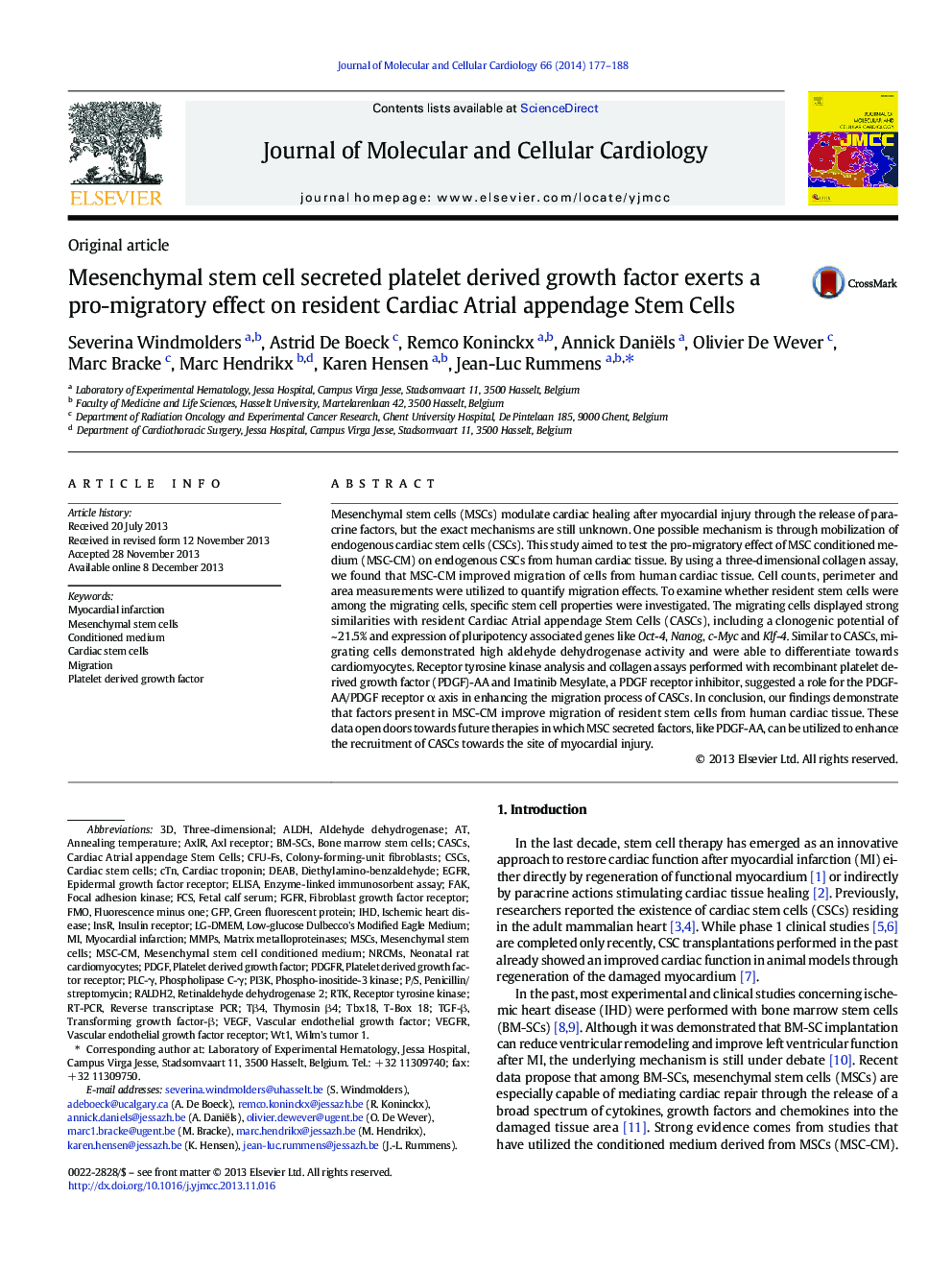| Article ID | Journal | Published Year | Pages | File Type |
|---|---|---|---|---|
| 2190563 | Journal of Molecular and Cellular Cardiology | 2014 | 12 Pages |
•We examined the effect of MSC-CM on human cardiac tissue fragments in 3D collagen.•MSC-CM enhances cell migration from cardiac tissue in a time/distance dependent way.•Migrating cells strongly resemble Cardiac Atrial appendage Stem Cells (CASCs).•The PDGF-AA/PDGF receptor α axis plays a promising role in the migration process.
Mesenchymal stem cells (MSCs) modulate cardiac healing after myocardial injury through the release of paracrine factors, but the exact mechanisms are still unknown. One possible mechanism is through mobilization of endogenous cardiac stem cells (CSCs). This study aimed to test the pro-migratory effect of MSC conditioned medium (MSC-CM) on endogenous CSCs from human cardiac tissue. By using a three-dimensional collagen assay, we found that MSC-CM improved migration of cells from human cardiac tissue. Cell counts, perimeter and area measurements were utilized to quantify migration effects. To examine whether resident stem cells were among the migrating cells, specific stem cell properties were investigated. The migrating cells displayed strong similarities with resident Cardiac Atrial appendage Stem Cells (CASCs), including a clonogenic potential of ~ 21.5% and expression of pluripotency associated genes like Oct-4, Nanog, c-Myc and Klf-4. Similar to CASCs, migrating cells demonstrated high aldehyde dehydrogenase activity and were able to differentiate towards cardiomyocytes. Receptor tyrosine kinase analysis and collagen assays performed with recombinant platelet derived growth factor (PDGF)-AA and Imatinib Mesylate, a PDGF receptor inhibitor, suggested a role for the PDGF-AA/PDGF receptor α axis in enhancing the migration process of CASCs. In conclusion, our findings demonstrate that factors present in MSC-CM improve migration of resident stem cells from human cardiac tissue. These data open doors towards future therapies in which MSC secreted factors, like PDGF-AA, can be utilized to enhance the recruitment of CASCs towards the site of myocardial injury.
